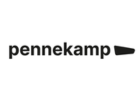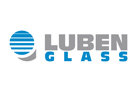The UK’s glass industry is changing as the country adapts to stricter environmental regulations and innovation stemming from Industry 4.0 – the ‘fourth industrial revolution’ that integrates and leverages computerised, interconnected and automated production processes in manufacturing – into our factories.
Preparing for change requires investing in the future, and while innovation is crucial for a company’s future, it amounts to nothing if you haven’t sourced the customer base to match. An opportunity that is often missed is to source new customers from overseas. Through expanding to new markets and new customer bases, new revenue streams can help to diversify business and make it more resilient to fluctuations in the domestic business climate.
Additionally, exposure to new markets can attract new skills and innovation, having an impact on long-term competitive advantage and stability.
High-volume glass manufacturing contributes around £1.3 billion to the UK economy each year, and specialist glass manufacturers on British shores are developing innovative glass for use in medical, communications, navigational and power generation technology.
Our specialist glass industry is an essential part of Britain’s advanced manufacturing potential and industry. Beyond that, companies that supply glassmakers with furnaces, equipment and specialist refining chemicals to make products mean that glass production stretches into other facets of our industrial economy. The UK’s glass industry is renowned for its high quality – making it trusted and respected in the global marketplace.
Additionally, as our environmental standards for glass production are amongst the world’s most rigorous, UK companies are well positioned to take advantage of the robust global demand for high-quality products that can meet the world’s most stringent standards.
The UK’s reputation for specialist glass, and glassmaking equipment, puts it at an advantage when approaching certain international markets. A study on the matter suggests that promoting the ‘Made in the UK’ or the ‘Britishness’ of a product can make buyers willing to pay a premium, and there’s no reason this national brand advantage shouldn’t be translated to the glass industry. Global glass consumption varies by country and region, however certain markets remain net glass importers – which presents an opportunity for the UK, particularly in specialist glass and industrial equipment design.
The biggest area of opportunity for the UK glass industry lies within the research and development side of the industry. There’s also room for British producers to move into the international flat glass and fibre glass markets.
Additionally, there are some ways that British companies can get into the international market while still operating at home. For example, a number of wine producers from Australia and South Africa are shipping their wine to the UK to be bottled and sold domestically. International Trade Advisers from the Department for International Trade are on hand to support our manufacturers and the related industry to make the most of this global market. With support available ranging from monetary assistance to attend trade shows, to introducing companies to contacts in new markets, DIT is helping British companies capitalise on global demand.
For example, a Southend-on-Sea manufacturer of furnaces for making crystal glass recently secured a £4.2-million contract to supply a custom-made furnace to a new Portuguese customer.
Glasstronics, based in Great Wakering, designs furnaces that melt glass using electric current. Its latest contract is with Vista Alegre, a Portuguese business that sells crystal glass tableware, gifts and lamps directly to consumers across Portugal and Spain.
The multi-million-pound deal will see Glasstronics build and supply a furnace for Vista Alegre to make its own crystal glass. The furnace will give the business the capacity to produce 12,000 tonnes of crystal glass every 24 hours – equal in weight to the Eiffel Tower and enough to make 60 million drinking glasses per year. ITAs at DIT helped the company to secure a bond to cover production costs for the furnace, a requirement of the contract with Vista Alegre, by linking them with UK Export Finance to facilitate the process.
This is Glasstronics’ biggest contract in more than 20 years and has the potential to increase the business’ £1million annual turnover by as much as 400% to £4million within the next 12 months. Research shows that companies that export are more profitable and resilient than those that do not. However, many SMEs may approach exporting with caution. With 64% of UK manufacturing firms being SMEs with a turnover smaller than £40m per year, there may be a lot of British glass companies missing out on the global demand for our product.
Exporting can, of course, present certain challenges. But with the right knowledge and support, these can be addressed and overcome.
Whether it is working with experts from across government, including the diplomatic teams based in our embassy and consulates, or leveraging our existing relationships with regulatory stakeholders on behalf of British companies, DIT teams will be there every step of the way.
In addition to offering support through trade missions and export funding, DIT also has expert ITAs across the UK to help companies of all sizes with going overseas, on everything from legal issues to tax and logistics.
Tapping into the growing opportunities abroad can help British glass manufacturers and the related industry to diversify their income and create more sustainable businesses. I encourage any interested firms to get in touch with our team via their local DIT office or great.gov.uk, and see how we can help them start or grow their export activity.
The support is out there, and your glass could be too.

























